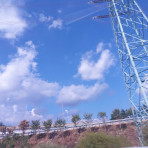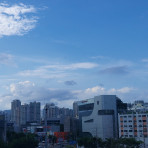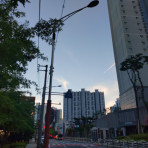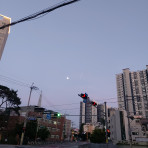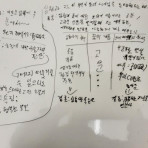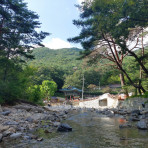Pyongyang ‘open to enhancing ties with Japan’: N Korean leader’s siste…
본문
Thu, 15 Feb 2024 23:26:00 -0500

The powerful sister of the North Korean leader Kim Jong Un on Thursday said the hermit state is open to enhancing its ties with Japan, even suggesting the possibility of inviting the Japanese prime minister to Pyongyang.
Kim Yo Jong’s remark came after Japanese Prime Minister Fumio Kishida said during a speech last week that he feels a “strong need” to alter the current relationship between Japan and North Korea.
“I think there would be no reason not to appreciate his recent speech as a positive one, if it was prompted by his real intention to boldly free himself from the past fetters and promote the DPRK-Japan relations,” said Kim Yo Jong, as cited by North Korea’s state-run Korean Central News Agency on Thursday.
DPRK refers to the Democratic People’s Republic of Korea, the North’s official name.
The Japanese prime minister’s visit to Pyongyang “might come,” if Tokyo “drops its bad habit of unreasonably pulling up the DPRK over its legitimate right to self-defense and does not lay such a stumbling block as the already settled abduction issue,” said Kim, adding that it is just her “personal view.”
“I think our state leadership still has no idea of repairing the DPRK-Japan relations and has no interest in contact,” she said. “It is necessary to watch the ulterior intention of Prime Minister Kishida in the future.”
The issue of abductions remains a significant obstacle to diplomatic normalization between North Korea and Japan.
Tokyo claims it has confirmed the abductions of 17 Japanese citizens by North Korea in the 1970s and 1980s for language education for North Korean spies, and 12 are still in the North.
Pyongyang contends that of the 12, eight have already died, and four never entered North Korea, asserting that there is no issue to be resolved.
Following Kim Yo Jong’s comments, Japanese foreign ministry spokesperson Yoshimasa Hayashi on Friday refuted Kim’s statement that “the abduction issue has already been resolved” as “completely unacceptable.”
He stressed during a regular press meeting that “Japan has not changed its policy of comprehensively resolving issues such as abduction and nuclear and missile programs on the basis of the Japan-North Korea Pyongyang Declaration.”
The declaration was signed in 2002 after former Japanese Prime Minister Junichiro Koizumi visited Pyongyang.
The declaration contained four sections: promoting talks on normalization of diplomatic relations, compensation based on reflection on past history, preventing the recurrence of “regrettable issues,” such as abductions, and establishing cooperation to resolve nuclear and missile issues.
Hayashi declined to comment further since “it could affect future negotiations.”
When asked what North Korea’s intentions were in making such a statement, he replied: “I am not in a position to comment on North Korea’s intentions and objectives.”
Edited by Elaine Chan and Mike Firn.
The powerful sister of the North Korean leader Kim Jong Un on Thursday said the hermit state is open to enhancing its ties with Japan, even suggesting the possibility of inviting the Japanese prime minister to Pyongyang.
Kim Yo Jong’s remark came after Japanese Prime Minister Fumio Kishida said during a speech last week that he feels a “strong need” to alter the current relationship between Japan and North Korea.
“I think there would be no reason not to appreciate his recent speech as a positive one, if it was prompted by his real intention to boldly free himself from the past fetters and promote the DPRK-Japan relations,” said Kim Yo Jong, as cited by North Korea’s state-run Korean Central News Agency on Thursday.
DPRK refers to the Democratic People’s Republic of Korea, the North’s official name.
The Japanese prime minister’s visit to Pyongyang “might come,” if Tokyo “drops its bad habit of unreasonably pulling up the DPRK over its legitimate right to self-defense and does not lay such a stumbling block as the already settled abduction issue,” said Kim, adding that it is just her “personal view.”
“I think our state leadership still has no idea of repairing the DPRK-Japan relations and has no interest in contact,” she said. “It is necessary to watch the ulterior intention of Prime Minister Kishida in the future.”
The issue of abductions remains a significant obstacle to diplomatic normalization between North Korea and Japan.
Tokyo claims it has confirmed the abductions of 17 Japanese citizens by North Korea in the 1970s and 1980s for language education for North Korean spies, and 12 are still in the North.
Pyongyang contends that of the 12, eight have already died, and four never entered North Korea, asserting that there is no issue to be resolved.
Following Kim Yo Jong’s comments, Japanese foreign ministry spokesperson Yoshimasa Hayashi on Friday refuted Kim’s statement that “the abduction issue has already been resolved” as “completely unacceptable.”
He stressed during a regular press meeting that “Japan has not changed its policy of comprehensively resolving issues such as abduction and nuclear and missile programs on the basis of the Japan-North Korea Pyongyang Declaration.”
The declaration was signed in 2002 after former Japanese Prime Minister Junichiro Koizumi visited Pyongyang.
The declaration contained four sections: promoting talks on normalization of diplomatic relations, compensation based on reflection on past history, preventing the recurrence of “regrettable issues,” such as abductions, and establishing cooperation to resolve nuclear and missile issues.
Hayashi declined to comment further since “it could affect future negotiations.”
When asked what North Korea’s intentions were in making such a statement, he replied: “I am not in a position to comment on North Korea’s intentions and objectives.”
Edited by Elaine Chan and Mike Firn.
자유아시아방송 제공 및 저작권 소유 | RFA provided and copyrighted -www.rfa.org

The powerful sister of the North Korean leader Kim Jong Un on Thursday said the hermit state is open to enhancing its ties with Japan, even suggesting the possibility of inviting the Japanese prime minister to Pyongyang.
Kim Yo Jong’s remark came after Japanese Prime Minister Fumio Kishida said during a speech last week that he feels a “strong need” to alter the current relationship between Japan and North Korea.
“I think there would be no reason not to appreciate his recent speech as a positive one, if it was prompted by his real intention to boldly free himself from the past fetters and promote the DPRK-Japan relations,” said Kim Yo Jong, as cited by North Korea’s state-run Korean Central News Agency on Thursday.
DPRK refers to the Democratic People’s Republic of Korea, the North’s official name.
The Japanese prime minister’s visit to Pyongyang “might come,” if Tokyo “drops its bad habit of unreasonably pulling up the DPRK over its legitimate right to self-defense and does not lay such a stumbling block as the already settled abduction issue,” said Kim, adding that it is just her “personal view.”
“I think our state leadership still has no idea of repairing the DPRK-Japan relations and has no interest in contact,” she said. “It is necessary to watch the ulterior intention of Prime Minister Kishida in the future.”
The issue of abductions remains a significant obstacle to diplomatic normalization between North Korea and Japan.
Tokyo claims it has confirmed the abductions of 17 Japanese citizens by North Korea in the 1970s and 1980s for language education for North Korean spies, and 12 are still in the North.
Pyongyang contends that of the 12, eight have already died, and four never entered North Korea, asserting that there is no issue to be resolved.
Following Kim Yo Jong’s comments, Japanese foreign ministry spokesperson Yoshimasa Hayashi on Friday refuted Kim’s statement that “the abduction issue has already been resolved” as “completely unacceptable.”
He stressed during a regular press meeting that “Japan has not changed its policy of comprehensively resolving issues such as abduction and nuclear and missile programs on the basis of the Japan-North Korea Pyongyang Declaration.”
The declaration was signed in 2002 after former Japanese Prime Minister Junichiro Koizumi visited Pyongyang.
The declaration contained four sections: promoting talks on normalization of diplomatic relations, compensation based on reflection on past history, preventing the recurrence of “regrettable issues,” such as abductions, and establishing cooperation to resolve nuclear and missile issues.
Hayashi declined to comment further since “it could affect future negotiations.”
When asked what North Korea’s intentions were in making such a statement, he replied: “I am not in a position to comment on North Korea’s intentions and objectives.”
Edited by Elaine Chan and Mike Firn.
The powerful sister of the North Korean leader Kim Jong Un on Thursday said the hermit state is open to enhancing its ties with Japan, even suggesting the possibility of inviting the Japanese prime minister to Pyongyang.
Kim Yo Jong’s remark came after Japanese Prime Minister Fumio Kishida said during a speech last week that he feels a “strong need” to alter the current relationship between Japan and North Korea.
“I think there would be no reason not to appreciate his recent speech as a positive one, if it was prompted by his real intention to boldly free himself from the past fetters and promote the DPRK-Japan relations,” said Kim Yo Jong, as cited by North Korea’s state-run Korean Central News Agency on Thursday.
DPRK refers to the Democratic People’s Republic of Korea, the North’s official name.
The Japanese prime minister’s visit to Pyongyang “might come,” if Tokyo “drops its bad habit of unreasonably pulling up the DPRK over its legitimate right to self-defense and does not lay such a stumbling block as the already settled abduction issue,” said Kim, adding that it is just her “personal view.”
“I think our state leadership still has no idea of repairing the DPRK-Japan relations and has no interest in contact,” she said. “It is necessary to watch the ulterior intention of Prime Minister Kishida in the future.”
The issue of abductions remains a significant obstacle to diplomatic normalization between North Korea and Japan.
Tokyo claims it has confirmed the abductions of 17 Japanese citizens by North Korea in the 1970s and 1980s for language education for North Korean spies, and 12 are still in the North.
Pyongyang contends that of the 12, eight have already died, and four never entered North Korea, asserting that there is no issue to be resolved.
Following Kim Yo Jong’s comments, Japanese foreign ministry spokesperson Yoshimasa Hayashi on Friday refuted Kim’s statement that “the abduction issue has already been resolved” as “completely unacceptable.”
He stressed during a regular press meeting that “Japan has not changed its policy of comprehensively resolving issues such as abduction and nuclear and missile programs on the basis of the Japan-North Korea Pyongyang Declaration.”
The declaration was signed in 2002 after former Japanese Prime Minister Junichiro Koizumi visited Pyongyang.
The declaration contained four sections: promoting talks on normalization of diplomatic relations, compensation based on reflection on past history, preventing the recurrence of “regrettable issues,” such as abductions, and establishing cooperation to resolve nuclear and missile issues.
Hayashi declined to comment further since “it could affect future negotiations.”
When asked what North Korea’s intentions were in making such a statement, he replied: “I am not in a position to comment on North Korea’s intentions and objectives.”
Edited by Elaine Chan and Mike Firn.
좋아요3
이 글을 좋아요하셨습니다
관련링크
등록된 댓글이 없습니다.






